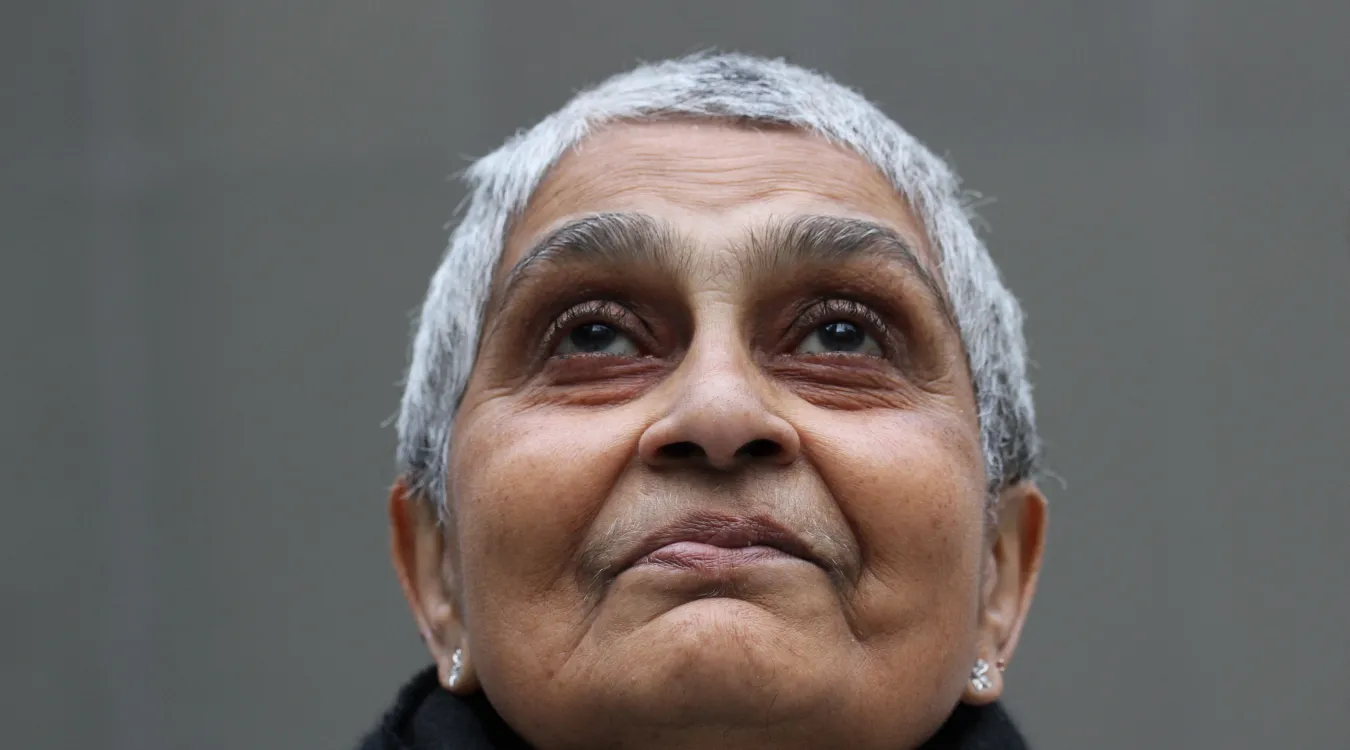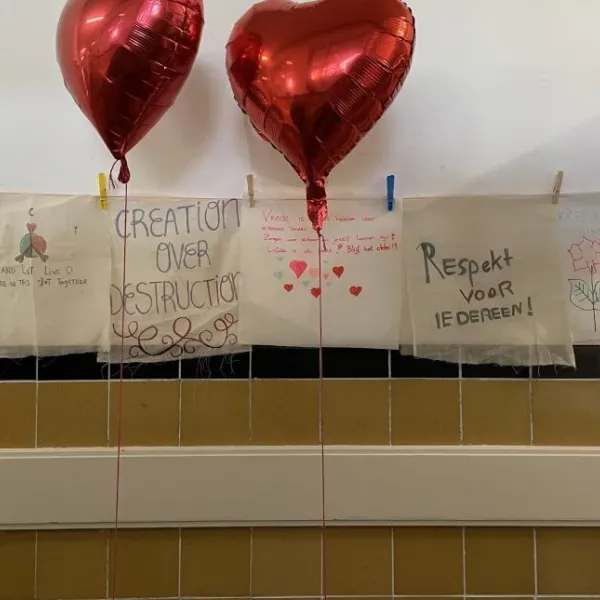Spivak Speaks
- Date: 25 June
- Time: 19:00 - 22:00
- Location: West Den Haag (Former US Embassy)

This year, the Holberg Prize has been awarded to Indian scholar Gayatri Chakravorty Spivak for her groundbreaking work in literary theory and philosophy. With a cash prize of 6 million Norwegian kroner (approximately €660,000), the Holberg Prize is one of the largest international research prizes in these fields. The prize is often considered the equivalent of the Nobel Prize for the humanities and social sciences.
On Wednesday, June 25, Gayatri Chakravorty Spivak will be a guest at West Den Haag. Parallel to the NATO summit in The Hague, she will give a lecture linked to West's new program “Worlding Art,” in which her ideas play an important role. This program is based on the idea that art can be rethought and used as a space for collective engagement with and care for the world.
She has done groundbreaking work at the intersection of political philosophy, feminist theory, postcolonial studies, translation, and comparative literature. She advocates an interdisciplinary approach to power and knowledge structures in a world characterized by inequality. In this context, Spivak fights illiteracy in disadvantaged rural communities in various countries, where she has set up and funded educational projects and teaches herself.
Spivak is known for the impenetrability of her academic texts, which contrast sharply with her accessibility as a speaker in the public domain. She is also praised for the way in which she translates her process-oriented thinking into concrete lessons for primary education. In her role as theorist and critic, Gayatri C. Spivak highlights the impact of intellectual colonization in a globalized world. Her 1988 essay, “Can the Subaltern Speak?”, in which she questions representation and personal self-determination in former colonies, is still considered a key text in postcolonial studies. Her influence now extends far beyond the academic world, into the arts sector, where institutions and practices are attempting to decolonize themselves. In this capacity, she has been a sought-after speaker at leading museums and art institutions over the past decades.
West underscores Spivak's significance for the cultural field by taking her ideas as the starting point for its content policy and long-term programming. With “Worlding Art,” we aim to provide building blocks for a more equal, inclusive, and diverse society. In a transdisciplinary program that brings together literature, philosophy, science, and visual arts, participants are challenged to look beyond the limiting lens of 'the art world' and approach art from a renewed perspective based on their own insights and experiences.
This process, inspired by Spivak's ideas about giving voice to the 'subaltern' — those who are structurally excluded from speaking within dominant (Western, colonial) discourses — underlines the importance of active participation. The focus is precisely on those who often fall outside traditional art discourses. The audience is no longer a passive spectator, but an active and essential participant who contributes to the art process—and thus to the redefinition of art within a broader social and political context.
Gayatri Chakravorty Spivak (1942) Gayatri Chakravorty Spivak (1942) is an influential Indian thinker in the fields of literary theory, feminism, and postcolonial studies. She is a University Professor at Columbia University and co-founder of the Institute for Comparative Literature and Society. With her translation of Derrida's “De la grammatologie” and her book “A Critique of Postcolonial Reason,” she established her name as a critical founder of postcolonial theory. Spivak taught worldwide, received numerous awards, and was honored with the Kyoto Prize (2012) and the Holberg Prize (2025), among others.
More information about the time of the lecture and the program will follow shortly.
West Den Haag (Former US Embassy)
Lange Voorhout 102
2514EJ, Den Haag Sign Up


